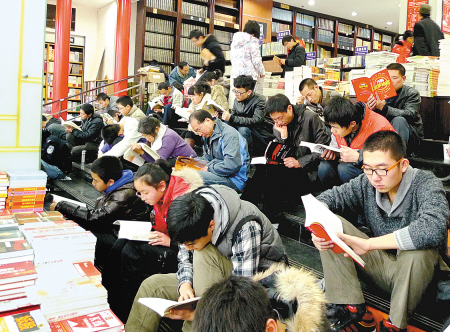
Science and technology.
科技。
Scientific publishing
科技出版業(yè)
Brought to book
好書(shū)來(lái)了
Academic journals face a radical shake-up
學(xué)術(shù)期刊面臨徹底改變
IF THERE is any endeavour whose fruits should be freely available, that endeavour is surely publicly financed science. Morally, taxpayers who wish to should be able to read about it without further expense. And science advances through cross-fertilisation between projects. Barriers to that exchange slow it down.
如果有人試圖把成果免費(fèi)公開(kāi)的話,那他一定是科學(xué)資助者,確實(shí),納稅人都希望不再花額外的錢來(lái)閱讀科學(xué)著作,并且科學(xué)的進(jìn)步也是通過(guò)各個(gè)學(xué)科之間的相互促進(jìn)吸收,而其間的交流障礙使這種進(jìn)步慢了下來(lái)。
There is a widespread feeling that the journal publishers who have mediated this exchange for the past century or more are becoming an impediment to it. One of the latest converts is the British government. On July 16th it announced that, from 2013, the results of taxpayer-financed research would be available, free and online, for anyone to read and redistribute.
在過(guò)去一個(gè)世紀(jì),期刊出版商給人廣泛的感覺(jué)就是他們調(diào)停了這種交流,甚至阻礙了這種交流。而最新的改變發(fā)生在英國(guó)政府身上,它在7月16宣布,從2013年開(kāi)始,由納稅人資助的科研成果都會(huì)在網(wǎng)上免費(fèi)公開(kāi),并且任何人都可以閱讀和轉(zhuǎn)發(fā)。
Britain's government is not alone. On July 17th the European Union followed suit. It proposes making research paid for by its next scientific-spending round-which runs from 2014 to 2020, and will hand out about











